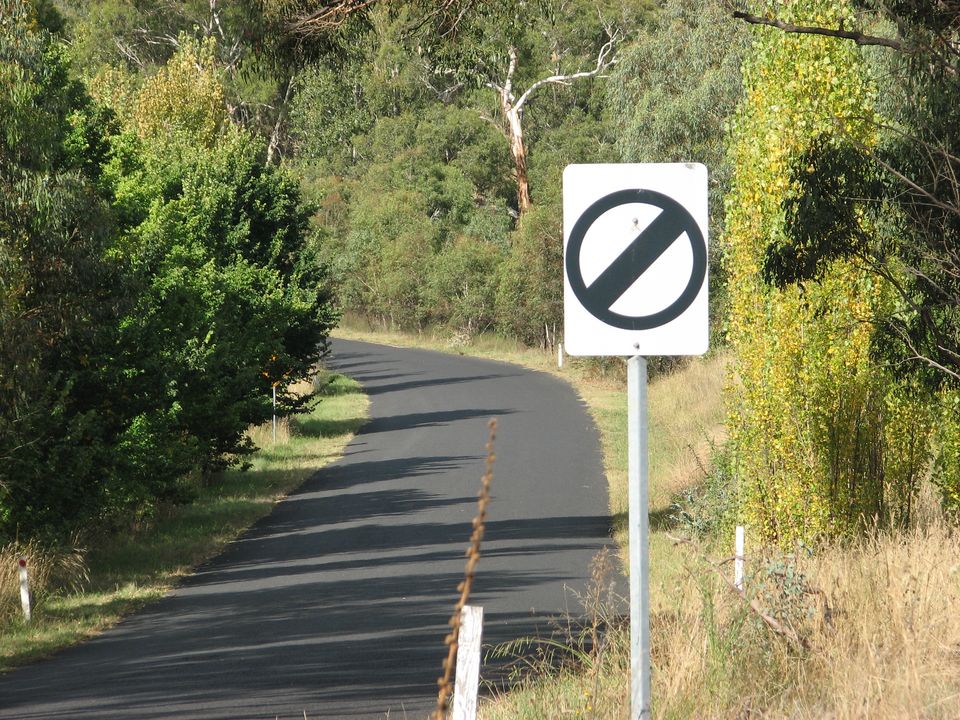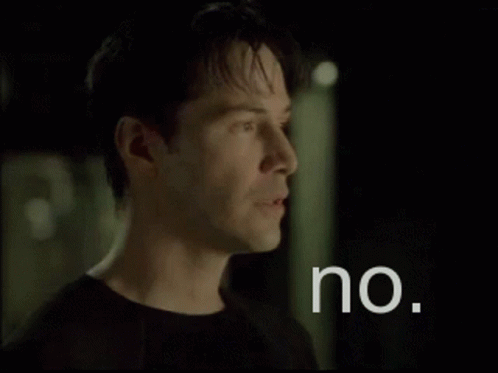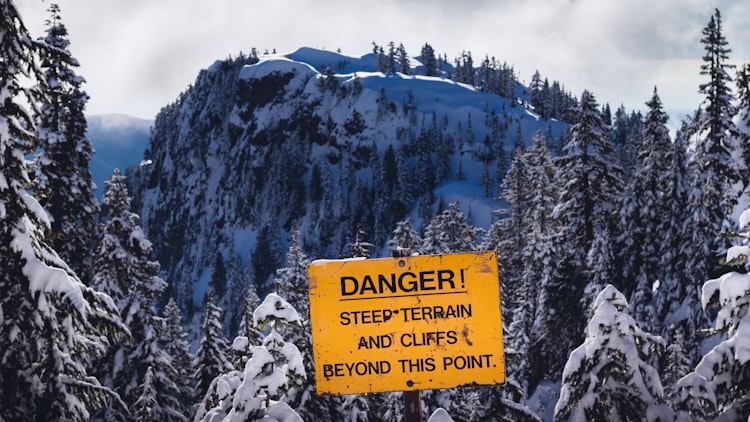Warm Take: Just Saying No

In May, 2021, a group of four academics set a goal for the following year — to say “no,” collectively, 100 times.
“We are members of a group of mid-career environmental social scientists who have met weekly for a decade to give each other feedback on our research…Increasingly, we were bringing our work invitations and opportunities to the group, hoping that the members would serve as a ‘no committee’ that would help us decide which opportunities to reject.”
Amanda E. Cravens, Rebecca L. Nelson, A. R. Siders & Nicola Ulibarri described their experience in recent article for Nature. They structured the goal as a challenge, tracking their requests and responses. They also tracked their own emotional reactions to each response, noticing that saying “no” could be emotionally charged.
They observed that they “…wanted to be kind, helpful and available, even if doing so left us personally overwhelmed.” And, that this was hardly sustainable.
As peers in the same field, group members were uniquely positioned to support one another. They could see shared patterns in their careers. They could understand institutional realities that, for example, made self-help advice for saying “no” ineffective, and even counterproductive. And that early career “yeses” had helped each member to develop networks and set their professional direction. By mid-career, they had established personal and professional priorities, and needed to double down on work that aligned accordingly.
The group developed criteria for evaluating each request for their time and expertise. With practice, they learned that their responses could be strategic. They got better at setting boundaries, and did better work on the projects they did take on.
We do need some naysayers, I mean truth-tellers
I’ve recommended Chris Whipple’s The Gatekeepers: How the White House Chiefs of Staff Define Every Presidency in the newsletter before, and to individual executives. Published in 2017, Whipple told the stories of seventeen Chiefs of Staff, and how each enabled their boss to function, or not, in office. It’s a solid book about effective and ineffective management in a high-stakes workplace. I enjoyed it tremendously.
So, I jumped on Whipple’s recent opinion piece on Mark Meadows, describing ways in which Donald Trump’s Chief of Staff was a “uniquely dangerous failure” in his role, partly by saying “yes” to too many people around his boss.
Large organizations, multinationals, and governments are laden with formal and informal systems. Sometimes what looks like inefficiency can be a feature, not a bug, serving as institutional guardrails that limit indiscriminate “yeses.”
I suggest The Gatekeepers to new and aspiring executives, especially if you’ve only worked in startups, smaller organizations, and/or closely held businesses – organizations where you may need to install your own guardrails.
I’ve also recommended The Gatekeepers to executives who aren’t hearing their team members say “no.” The book brings home the importance of surrounding yourself with good people, who will share bad news along with the good. Then, you need to listen.
Once Manhattan’s largest tenant, WeWork was at one point (theoretically) valued at $47 billion. Investors pumped billions into the company before it went public at a $9 billion valuation. Today, it’s a penny stock, and the entire enterprise is valued at around 234 million dollars.
Who said “no” to founder Adam Neumann as he grew WeWork — and invested in a surfer’s superfood company, smoked weed on a transatlantic flight via private jet, and put a family member at the helm of a startup NYC private school? I'm not sure if anyone did, until he was forced out; the blow of “no” was softened by hundreds of millions of dollars.
WeWork is an extreme tale about building a dysfunctional family business, not coincidentally, with other people’s money, in a system that was loathe to say, "no." Jamelle Bouie’s recent opinion piece touched on management practices, honed in a closely-held business, that came into play in the Trump White House. And the system that stepped in, this time, for the people who were loathe to say "no."
Who's on your "no committee?"
Amanda E. Cravens, Rebecca L. Nelson, A. R. Siders & Nicola Ulibarri are in a rare situation, with a decade of commitment to one another’s success and thriving.
I was interested in the scientists' observation that advice column suggestions weren’t effective for them. We seem to be in a golden age of advice (columns.) An advice columnist may have common sense. They lack the particular sense of you, and the context you’re operating in. The scientists’ group has both, combined with their commitment to their relationships.
Like the scientists, I'm part of a group that has been meeting regularly, over the course of probably 15 years now. We’ve loosely modeled our process on the one Bill George described in his True North Groups. I recommend George's book for those interested in this kind of peer support. It can be so powerful.
It takes a lot of backbone and heart to keep a group like this together, and it’s not for everyone. If you're feeling like you could use a “no committee,” it's worth exploring.
Thank you for inviting me to your inbox – and many thanks to the folks who pay to support the newsletter. And for indulging my possible typos, errors, or inexact thoughts that may land in your inbox, but may be corrected later on, on the Internet*.
I love to hear from you, so please send me a note if you're so moved. If you read the Bill George book, and decide to create your "no committee"/peer support group, I'd love to hear about it, and am glad to answer questions about my peer support group experience.
It's Labor Day here in the US, and I'm holding back on the topic today, as media here has got us covered for related Content™️. I am winding up for a deep dive on Advice, and continue to watch Return To Office anecdotes and trends with extreme interest. More to come!
May you, your loved ones, co-workers and neighbors be safe, healthy, and free.
*indeed, I have done some copy editing and added a couple of points since this newsletter landed in people's inboxes.
Showing my work
- Mark Meadows Is a Warning About a Second Trump Term, Guest Essay by Chris Whipple, The New York Times, Opinion, August 31, 2023 (unlocked link)
- WeWork Taps Directors With Bankruptcy Chops After Board Resignations, by Alexander Gladstone, Akiko Matsuda and Konrad Putzier, Wall Street Journal, August 9, 2023. (unlocked link)
- Trump, the Worst Boss You’ve Ever Had, by Jamelle Bouie, The New York Times, Opinion, June 23, 2023 (unlocked link)
My sole Labor Day aside – I do regret the (unpaid) labor I contributed to making old Twitter work, sort of, for some people, and not always me. I wrote a lengthy thread on how Trump's White House seemed like a family business, lost to the ages when I deleted my account. (Though it is archived on my laptop...somewhere.) Bouie's piece affirmed my insight, which takes some of the sting out of my lost work. Sigh. - "Why four scientists spent a year saying no," by Amanda E. Cravens, Rebecca L. Nelson, A. R. Siders & Nicola Ulibarri, Career Column at Nature, August 25, 2022.
- What Happened to WeGrow, Rebekah Neumann’s School in 'WeCrashed', by Nick Pope, Esquire, April 8, 2022
- In Platformed in my October 18, 2020 issue, Platforms: On Management 45, I wrote about Reeves Wiedeman's 2020 book, Billion Dollar Loser: The Epic Rise and Spectacular Fall of Adam Neumann and WeWork (library) (Bookshop)
- How Adam Neumann’s Over-the-Top Style Built WeWork. ‘This Is Not the Way Everybody Behaves.’ by Eliot Brown, Wall Street Journal, September 18, 2019 (unlocked link)
- WeWork Co-Founder Has Cashed Out at Least $700 Million Via Sales, Loans by Eliot Brown, Maureen Farrell and Anupreeta Das, Wall Street Journal, July 18, 2019 (unlocked link)
- The Gatekeepers: How the White House Chiefs of Staff Define Every Presidency, by Chris Whipple (library)(Bookshop) Beyond the pure organizational nerd joy I found while reading this book, it brought recent U.S. presidential history to life for me. I haven't done a lot of reading in that area, beyond what was assigned in school, back in the day.
- True north groups : a powerful path to personal and leadership development, Bill George and Doug Baker, 2011. (library)(Bookshop) One note – you may need to use your imagination when reading this book. While reading, I envision groups meeting in Methodist church basement meeting rooms, a big aluminum urn of weak but bitter coffee at the ready. This is very possibly not what your group will look like – mine certainly never has. The process, though, has value, though your group will likely need to live your way into how it can work for you.





